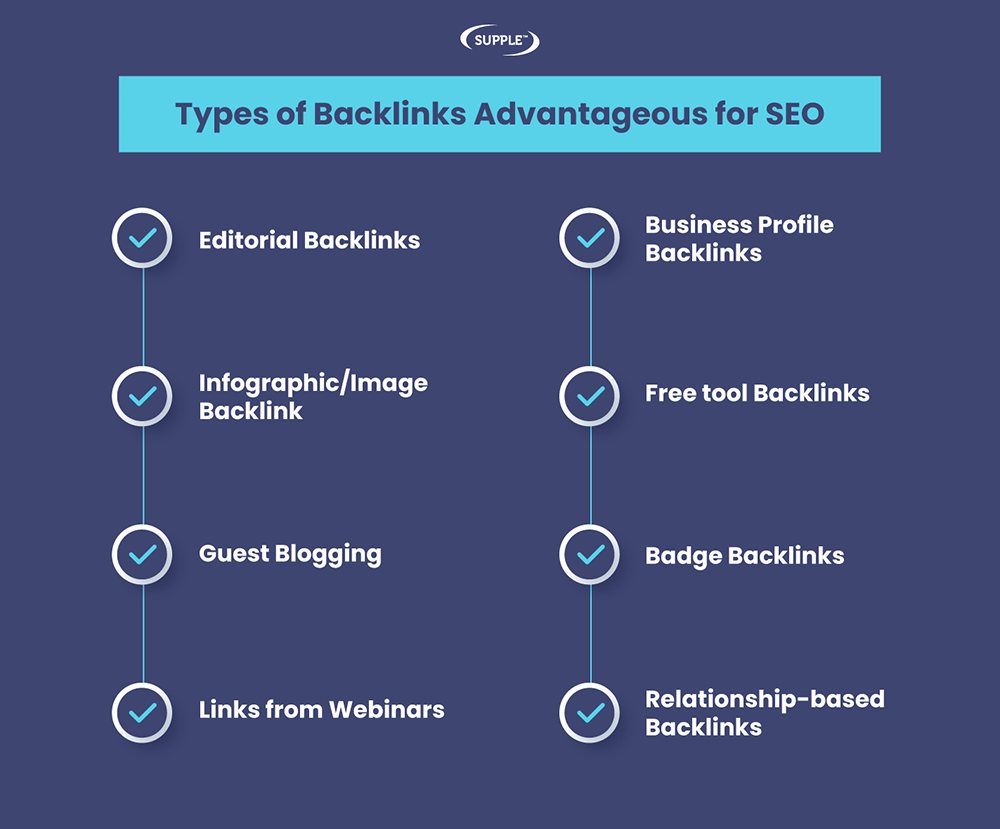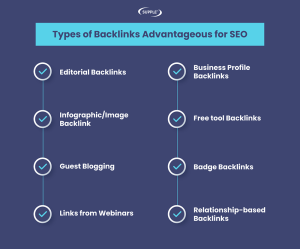Backlinks are an important part of SEO (Serach Engine Optimization) and can help improve your website’s ranking in the SERPs (Search Engine Results Pages). They act as a signal to search engines that other websites have found the content on your website valuable, thereby enabling them to determine your website’s relevance and authority in a particular niche.
However, there are different types of backlinks which commandeer different responses to SEO while determining your webpage’s credibility and authenticity. The two main types of backlinks are do-follow and no-follow.
To use backlinks to the most of advantage, it is essential to understand these different types of backlinks and how they impact your SEO.
Do-follow Backlinks:
Out of all the different types of backlinks, do-follow backlinks carry the most SEO value. When a website links to another with a do-follow link, it essentially signals to search engines that the linked content is valuable and trustworthy. Search engine crawlers follow these links, thus allowing link equity to flow from the source page to the target page. This means that the more high-quality do-follow backlinks your website has, the higher its chances of ranking well in search engine results pages (SERPs).
The significance of do-follow backlinks lies in their ability to pass on “link juice,” which is essentially the value, relevance, and authority of the source page. Earning these links requires creating exceptional content that others naturally want to link to, outreach, or collaborations with authoritative websites within your niche.
No-follow Backlinks:
No-follow backlinks, on the other hand, are often misunderstood but hold their own importance in the SEO landscape. These links are coded with a rel=”nofollow” attribute, signaling to search engines that they shouldn’t pass on link equity. Initially introduced to combat spam and prevent search engine manipulation, no-follow links were widely used in user-generated content and comments sections.
As stated in the very beginning, the different types of backlinks have their own distinct responses to SEO. The same goes for the no-follow backlinks. Even though no-follow links – among all the different types of backlinks – do not have direct implications to SEO rankings, they have their own hidden trick up their sleeves. For instance, having no-follow links diversify your backlink profile, creating a healthy and organic link porfile that erases the risk of adulterations. Google’s algorithms consider a mixture of both do-follow and no-follow links as a more organic linking pattern, thus boosting your website’s credibility. Hence, all the different types of backlinks – even the no-follow links – helps in driving website traffic and boosting online presence.
How Page Rank is Effected by the Different Types of Backlinks: Page Rank and Do-follow/No-follow Links
Page Rank is an algorithm used by Google to determine the importance of a website. It takes into account several factors, including the number and quality of the different types of backlinks pointing to a particular page.
Both do-follow and no-follow links can affect the position of your webpage in page rank, and consequently, in search engine results pages (SERPs). For instance, do-follow links are followed by search engine crawlers, which help in increasing your website’s ranking in SERPs. Unlike do-follow links, however, no-follow links do not pass any ‘link juice’ and influence rankings but still provide value as referral traffic sources.
Understanding how these two types of backlinks work can help you optimize your website’s SEO strategy and make it rank higher in SERPs.
Do-follow Links and Page Rank: Link Equity Flow
Do-follow links are crucial in the context of Page Rank because they allow the flow of link equity from one page to another. Link equity, also called ‘link juice’, demonstrates the value and level of authority of links from one website to another. When a web page links to another using a do-follow link, it essentially endorses the linked page and signals to search engines that the content is valuable and relevant.
The way link equity flows through do-follow links is as follows:
Source Page: The page that includes the do-follow link has a certain amount of PageRank value. This value is distributed among all the links on the page that are eligible to pass link equity.
Linked Page: The page receiving the do-follow link gains a portion of the source page’s PageRank value. The exact portion depends on factors such as the number of outbound links on the source page and the quality of the link.
In essence, a webpage’s Page Rank score can increase when it receives do-follow links from authoritative and high-quality sources.
No-follow Links and Page Rank: Link Equity Blocking
A no-follow link can be identified by the rel=”nofollow” attribute in their HTML code. Upon locating this attribute, the search engine stops following the link and withholds the flow of ‘link juice’ or link equity. Originally introduced as a measure to combat spam and prevent manipulative link-building practices, no-follow links were widely adopted in user-generated content, comments, and links that advertisers didn’t want to pass authority to.
When a web page includes a no-follow link, the following happens:
Source Page: The source page’s PageRank value remains unaffected. No link equity flows through the no-follow link, and search engines do not consider this link as a factor in assessing the linked page’s authority.
Linked Page: The linked page does not receive any link equity from the no-follow link. In the eyes of search engines, this link doesn’t contribute to the linked page’s PageRank score.
In essence, no-follow links do not contribute to the accumulation of link equity and do not directly impact a page’s Page Rank in the same way that do-follow links do.
How to Use the Different Types of Backlinks: Strategic Use of Do-follow and No-follow Links
In an effective SEO strategy, the judicious use of the different types of backlinks is crucial. Here’s how you can strategically employ do-follow and no-follow backlink types:
Do-follow Links:
Focus on acquiring do-follow links from authoritative and relevant sources. Guest posting, collaborating with influencers, and creating exceptional content are all avenues to earn these valuable links. A comprehensive backlink guide can help you explore the full scope of utilizing do-follow backlinks.
No-follow Links:
To reiterate, no-follow backlinks do not have any direct influence over rankings in SERPs. Nonetheless, they can still bring you referral traffic and give a boost to your website traffic, all while maintaining a healthy, unadulterated link profile. To make the most of your no-follow links, make sure to actively engage with your audience on social media, participate in forums, and leave insightful comments on industry-related blogs. These subtle yet profound interactions can help you foster new relationships, attract more visitors, and augment your online presence.
Balancing Act: Achieving Link Diversity
A well-rounded SEO strategy aims for link diversity. Relying solely on do-follow links can raise suspicions of manipulative practices, while an absence of no-follow links might indicate an incomplete understanding of modern SEO dynamics. Strive for a mix of the different types of backlinks to demonstrate authenticity and expertise in your field. Professional link building services can help you unlock the true potential of a diversified, well-balanced link profile.
Conclusion
The different types of backlinks play unique and equally critical roles in your SEO journey. However, to harness the true power of backlinks – specifically do-follow and no-follow links – it is absolutely essential to have a comprehensive understanding of both. And most importantly, you have to do use them right.
If you think backlink building is too much more you, you can also seek out expert assistance from professional SEO services.







